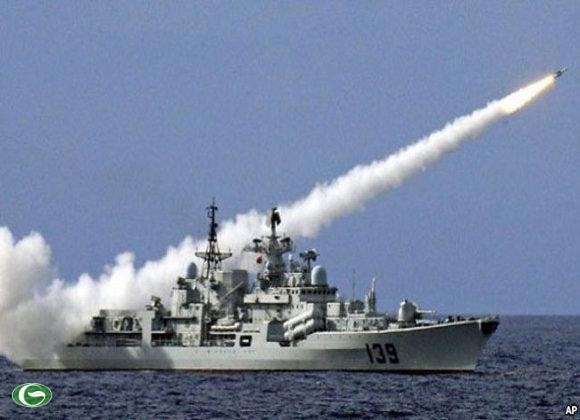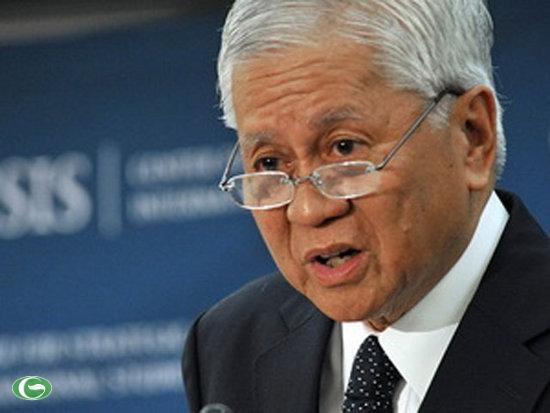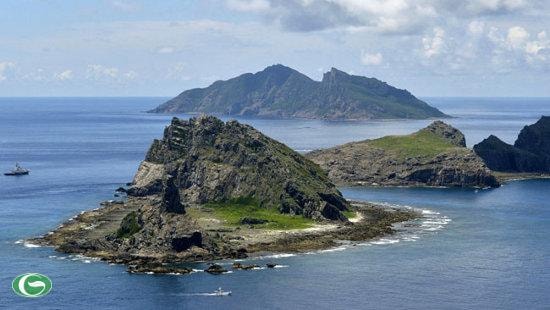South China Sea Dispute, Beijing is Losing Friends
That is the warning of analysts posted on ISN, one of the world's leading websites specializing in publishing and providing information to experts in the field of international relations and security, recently posted by TNHK.
That is the warning of analysts posted on ISN, one of the world's leading websites specializing in publishing and providing information to experts in the field of international relations and security, recently posted by TNHK.
The article, authored by Theresa Fallon, a senior fellow at the Belgium-based European Institute for Asian Studies, and Dr. Graham Ong-Webb, a consultant in charge of the Southeast Asia office of the Singapore-based global risk consultancy Control Risks, argues that Beijing’s “take-it-all” strategy continues to complicate relations between China and other countries and that Beijing is losing friends because of its behavior in the South China Sea and the East China Sea.
The Japan Times reported on October 5 that the National Security Archive at George Washington University reported that: “Japan’s claim to sovereignty over the Senkaku Islands is the strongest and most convincing.” These documents also show the skepticism of some US officials about the legal validity of China’s claim to sovereignty over the islands.

Chinese warships launch missiles during live-fire drills in the East Sea.
According to the two analysts, the reason why China's "take it all" strategy in the East Sea is facing obstacles is because China's historical claims of sovereignty are not convincing to all parties, combined with the difficulties in resolving overlapping claims of sovereignty among Taiwan (China), Vietnam, Indonesia, the Philippines, Malaysia and Brunei.
Two analysts, Ong-Webb and Fallon, emphasized that for international legal mechanisms to be effective in the East Sea dispute, China must first see that economic or military power cannot resolve sovereignty disputes, but must apply “soft power” to find friends and exercise leadership in the region, as well as apply the method of sharing resources together.
On October 4, the chairman of the ASEAN Maritime Forum issued a statement with provisions promoting regional cooperation. On the same day, upon hearing that UN Secretary General Ban Ki-moon had recently agreed with the call for peaceful resolution of disputes in the East Sea, Mr. Nguyen Khac Mai, head of the program “Wisdom to Master the East Sea”, said that this is a good opportunity for small and medium-sized countries to ask for help from this international organization.
The Inquirer newspaper on October 4 quoted the speech of Philippine Foreign Secretary Albert Del Rosario at a high-level meeting between officials.

Philippine Foreign Secretary Albert Del Rosario at a high-level meeting between Philippine and US officials
In another development, Japan's Kyodo news agency reported on October 4 that the country's Coast Guard had just discovered seven Chinese Navy warships moving off the coast of Okinawa. In addition, the ministry also said that a P-3C reconnaissance aircraft of the Japan Maritime Self-Defense Force and a destroyer had discovered Chinese warships heading out to the Pacific Ocean.
This is the first time Chinese warships have sailed through Japanese waters since tensions escalated over the Senkaku/Diaoyu Islands dispute last month after Tokyo nationalized the islands, which it calls Senkaku and China calls Diaoyu. The Japanese Defense Ministry also made it clear that under international law, the group of ships did not violate anything because they were operating in international waters.

Senkaku/Diaoyu Islands, whose sovereignty is disputed between Japan and China.
A shocking piece of information about the international public opinion when the Japan Times on October 5 reported that in the CIA's report studying the Senkaku Islands dispute, it showed that Japan's claim of sovereignty was the strongest and most convincing. This intelligence report was drafted in May 1971 and declassified at the National Security Archive of George Washington University, in which it stated: "Japan's claim of sovereignty over the Senkaku Islands is very strong, and the burden of finding evidence to prove ownership of the islands appears to be on China."
The documents also reflect skepticism among some US officials about the legal validity of China's claim to sovereignty over the islands, although this has never become Washington's official position on the matter.
Meanwhile, the dispute over the Senkaku/Diaoyu Islands escalated after Chinese officials and generals raised tense arguments. Late on October 3, Xinhua News Agency quoted Chinese Foreign Ministry spokesman Hong Lei as saying that Beijing would continue to send patrol ships to the waters off the Senkaku/Diaoyu Islands, which are disputed with Japan. The statement was made after news that some Japanese right-wing figures had visited the Senkaku/Diaoyu Islands. Spokesperson Hong Lei said: “China is closely monitoring developments on this issue. Coast guard ships will continue to patrol off the Diaoyu Islands.”
According to Chinhphu-M






